Over the past several months, holding people accountable has become a more salient issue. The coronavirus pandemic and the Black Lives Matter movement’s resurgence have sparked widespread questions about transparency and accountability. Who is truly responsible for protecting the best interest of the people most vulnerable to harm? What is our responsibility? Are the people with the most power doing their due diligence? If not, what can we do to make sure this changes?
As we all continue to ask questions and seek answers, the team at Ziksana has become interested in how our philosophy of focusing equally on results, and people can be useful during these times. When it comes to building a culture of accountability, we believe that this philosophy can be applied in valuable ways. If we hope to successfully hold leaders at all levels accountable, we must focus on getting results while remembering the importance of practicing empathy and understanding. While we understand that this approach may not be the most effective or appropriate in every situation, we believe the following tips can help you approach conversations about personal accountability with more ease and confidence.
1. Process Strong Emotions Before Engaging
When you witness a lack of accountability, you may feel angry or frustrated. When these emotions are heightened, you are more likely to be reactive rather than responsive. To avoid reacting in a way that creates defensiveness and conflict, try to process any heated emotions ahead of time. One way to do this is by sharing your perspective and emotions about the situation with a neutral person you trust to be fully supportive and understanding. Having your perspective heard fully, and understood before the conversation can help you approach it with more resilience and equanimity, especially if you think the other person will be resistant. If you feel yourself getting heated during the conversation, focus on giving the person effective feedback about how their words or behaviors are impacting you. Remember to use I statements and share your perception of what is going on rather than expressing blame or judgment.
2. Practice Curiosity
Before conversations about accountability, check your mindset. Are you assuming you already know exactly what is going on, or are you open to finding out more? Entering the conversation with a playful mindset of wondering rather than knowing can help you avoid making assumptions and accusations that lead to defensiveness. During the conversations, ask open-ended questions to find out more information about the other person’s perspective. In addition to asking questions about the other person’s perspective, ask curious questions about policies and processes that might be contributing to a lack of accountability. Getting curious about all the factors involved can help you discover valuable information that ultimately builds trust and makes you more effective. Being curious can take practice, and engaging with your play preferences is a great way to keep your mind open to learning.
3. Balance Your Approach
If you are accusatory and unyielding in your approach, you will likely be met with resistance or fear-based compliance. On the other hand, being overly laid-back and flexible makes it likely that you will be ignored or pacified by half-hearted efforts. Effectively holding people accountable requires a balance of conviction and understanding. Be clear about your desired end goal and ask closed-ended questions to encourage directness and transparency. At the same time, practice Appreciative Listening to create Psychological Safety and encourage open dialogue. Model fairness by listening to the other person’s perspective while also sharing yours. When team members feel that they are being treated fairly, they are more likely to be open to your efforts to engage with them. Employee engagement is important because multiple conversations about accountability are often necessary to create change. Building a fair company culture will increase the likelihood that the person will continue to engage with you and feel like you’re both “playing the same game.”
4. Get Commitment & Follow Up Consistently
Productive conversations about accountability include actionable steps and consistent follow-up. While it’s essential to be curious and understanding, it’s also crucial to reinforce your expectations that the person will accept responsibility and change their behavior accordingly. Ask the person what they are going to do to demonstrate accountability and set a future date to check in on progress. If they don’t follow through, go back to the previous steps. If you are feeling frustrated, process those emotions before engaging, and share objective feedback. Ask curious questions, remind them of your expectations, and work towards setting a new deadline.
The goal of holding someone accountable should always be a positive change. Remember to focus your efforts equally on getting the results you want and understanding the other person’s perspective to get to this outcome. While it can be challenging to remain open and curious, doing so can increase the likelihood that the other person will be willing to listen.















